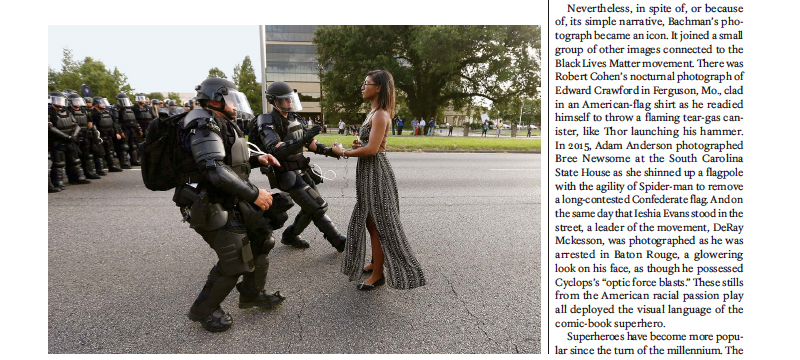Dialogic Reading Journal Table of Contents:
#1: Your NFL protest position/reflection: what’s your position? Why? What’s interesting about the issue? How do you feel about how we framed the issue?: the rhetorical dimensions of protesting against inequality, racial injustice, police brutality, and xenophobia.
#2: Your initial impression of the New York Times — Sunday patterns, curiosity, perseverance, turning every page …
#3: Your Rhetorical Analysis: why did you pick the essay that you picked? Concerns? Opportunities?
#4: Rhetorical Analysis Final Draft Reflection: On a scale of 1-10, which Drake are you, regarding your final draft?
Reflect for 250-350 words: What went well that you’re particularly happy with and confident about? What didn’t go well that you’re not happy with? If you were starting all over, what would you do differently next time?
#5: Our class dynamics & chemistry — how would you summarize or characterize your intellectual contributions thus far? Do you feel like we are a mutually respectful class — listening carefully, actively, and empathetically when other people are talking — and do we live up to our challenging goal of being “humane, inclusive, respectful, rigorous, and just”?
#6: Are you generally, more-or-less a curious person? Do you demand answers and get impatient when you can’t get answers? Or do you let everything wash over you like a gentle spring rain, never asking why is this happening? What causes this to happen? How does this work? Who benefits from it? Who does not? Or maybe you’re curious about some things but don’t like to share them because you’re afraid they’ll be perceived as silly or inconsequential or weird? Or is there a better way to pose this question — you and the concept of sustained inquiry/curiosity — that would help you to reflect on it?
#7: Using the conventions that we identified and discussed in class, write your own Obituary.
#8: What’s in your self-editing toolkit? Based on your Rhetorical Analysis and Op-Ed Essay, self-assess your writing-process strengths and challenges:
- brainstorming capacities: slowing down, thinking, weighing alternatives, suspending premature judgement, not picking the first, immediate choice; discussion, conversation, reflection
- drafting capacities: getting the words down, ignoring grammar and revising for this stage
- revising capacities: “re-seeing,” rethinking, overall big-picture items: tone, level of detail, does it even meet the assignment?
- editing capacities: visual and logistical coherence, an organizing principle; paragraph development and transitions
- proofreading capacities: we assume that you know how to do this by the time you’ve gotten to college; see “The Top 20: A Quick Guide to Troubleshooting Your Writing” in your SMH
- Planning and time-management capacities?
… and your ability to identify and use resources & help when you need them: me. SMH, Writing Center, each other, etc. It’s unlikely that everyone is equally great at every stage, so can you rank your strengths and challenges? Your sharpest and dullest arrows?
#9: Arthur Miller: “A good newspaper, I suppose, is a nation having a conversation with itself.” What does that conversation — specifically on the Op-Ed pages–sound like to you?
#10: Writing in longhand vs. typing on a keyboard. Remember the cultural & technological contexts from class: speed, acceleration, brevity vs. slowness, reflection, solitude.

